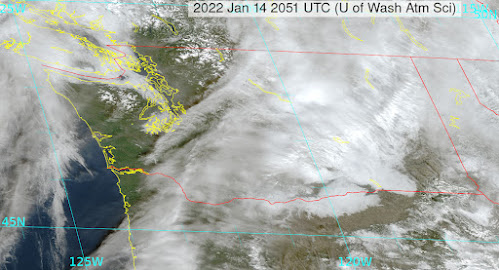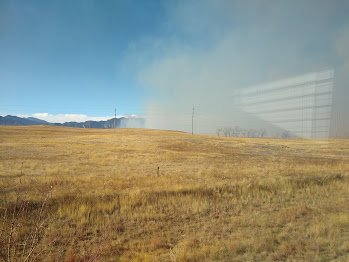The Best Weekend in a Long Time, Major Ridging Ahead, and the Mid-January Break: All in My New Podcast

After one dismal weekend after another, relatively dry conditions are ahead--thanks to persistent ridging--high pressure--over the northeast Pacific. The visible satellite image around noon shows sun reaching the surface for much of western WA, with the exception of fogged in areas near the water. Lots of fog and middle clouds still over eastern WA. A ridge of high pressure will develop aloft over the weekend (see map at 500 hPa...about 18,000 ft/..on Sunday morning below), leading to dry conditions and normal temperatures over much of the region. But the ridge will not be strong enough to keep middle-level clouds away or precipitation from British Columbia. Monday should be relatively dry until a moderate front approaches late in the day. Check the podcast for more details on the forecast....and an explanation of the typical mid-January drying of the region--illustrated by the probability of measurable precipitation at Sea Tac below. You can listen to the podcast below or through




